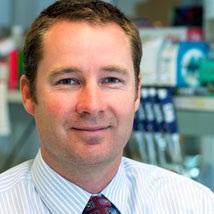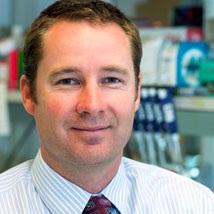
Twenty-seven of 29 patients with an advanced type of leukemia that had proved resistant to multiple other forms of therapy went into remission after their T cells (disease-fighting immune cells) were genetically engineered to fight their cancers.
Background: The immune system — a complex conglomerate that includes disease-fighting cells and proteins — is well-known for its remarkable ability to locate, recognize and attack invaders like the common cold. However, the immune system is not always able to eliminate cancer cells when they form. And once malignant tumors develop, they can use a variety of evasion tactics to outwit the immune system.
This experimental therapy is designed to overcome some of these challenges, harnessing the power of the immune system to fight cancers by genetically engineering patients' T cells with a synthetic receptor molecule called a CAR (for chimeric antigen receptor) that empowers the T cells to recognize and kill cancer cells that bear a specific marker, called CD19.
How the study was conducted: This trial was designed to evaluate the safety of administering the engineered cells and to lay the groundwork for future improvements. It enrolled only adult patients with advanced disease that had relapsed or would not respond to other therapies. This paper includes data from 30 participants with B-cell acute lymphoblastic leukemia who received the cells in Seattle through the Fred Hutch/University of Washington Cancer Consortium.
After patients' T cells were extracted from their bodies, a specialized virus delivered the DNA instructions for making the CAR into the cells. Then, the cells were multiplied to the billions in the lab. After chemotherapy, the now-reengineered cells were infused back into the patients they came from about two weeks after they were first extracted.
This study is the first CAR T-cell trial to infuse patients with an even mixture of two types of T cells (helper and killer cells, which work together to kill cancer). With the assurance that each patient gets the same mixture of cells, the researchers were able to come to conclusions about the effects of administering different doses of cells.
Key results: In 27 of 29 participants whose responses were evaluated a few weeks after the infusion, a high-sensitivity test could detect no trace of their cancer in their bone marrow. The CAR T cells eliminated cancers anywhere in the body they appeared. Of the two participants who did not go into complete remission, one eventually reenrolled in the trial and went into complete remission after receiving a higher dose of cells.
Not all patients stayed in complete remission: some relapsed and were treated again with CAR T cells, and two relapsed with leukemias that were immune to the CAR T cells. It is too early to know what the long-term outcomes of the cell therapy are, the researchers said.
The researchers also learned how to revise their strategy to lower the risks of serious side effects and prevent rejection of the engineered cells. They also gathered data that may help them predict serious side effects in the future.
Author quote(s): "Patients who come onto the trial have really limited options for treatment. They have refractory, acute leukemia. So the fact that we're getting so many into remission is giving these people a way forward," said study leader Dr. Cameron Turtle.
"In early-phase trials, you're continually learning. You don't expect results like these from early-phase trials. That's why these response rates are so extraordinary," said senior author Dr. David Maloney.
"This is just the beginning," Turtle said. "It sounds fantastic to say that we get over 90 percent remissions, but there's so much more work to do make sure they're durable remissions, to work out who's going to benefit the most, and extend this work to other diseases."
Study strengths: This paper includes the largest number of participants of any other published study using CD19 CAR T cells against this particular type of cancer.
It is also the first to infuse patients with a defined ratio of killer and helper T cells. This well-controlled method allowed the authors to provide the first clear evidence of the relationships between the doses of cells participants received and their outcomes after infusion.
Study limitations: As an early-phase trial, this study was not designed to provide definitive evidence of the therapy's effectiveness against cancer. It is also a small number of participants (the trial continues to enroll and will publish results from larger number of participants in the future).
###
Funding and disclosures: The work was funded by the National Cancer Institute (grant No. R01-CA136551), Juno Therapeutics, private philanthropists, and the Life Sciences Discovery Fund. The authors declare no competing financial interests.
Collaborating institutions: University of Washington, Juno Therapeutics, Seattle Children's Research Institute, Institute for Advanced Study (Technical University of Munich).
ABOUT FRED HUTCH
At Fred Hutchinson Cancer Research Center, home to three Nobel laureates, interdisciplinary teams of world-renowned scientists seek new and innovative ways to prevent, diagnose and treat cancer, HIV/AIDS and other life-threatening diseases. Fred Hutch's pioneering work in bone marrow transplantation led to the development of immunotherapy, which harnesses the power of the immune system to treat cancer with minimal side effects. An independent, nonprofit research institute based in Seattle, Fred Hutch houses the nation's first and largest cancer prevention research program, as well as the clinical coordinating center of the Women's Health Initiative and the international headquarters of the HIV Vaccine Trials Network. Private contributions are essential for enabling Fred Hutch scientists to explore novel research opportunities that lead to important medical breakthroughs. For more information visit fredhutch.org or follow Fred Hutch on Facebook, Twitter or YouTube.
Media Contact
Sandy Van
[email protected]
808-526-1708
@FredHutch
http://www.fhcrc.org
The post Study: 93 percent of advanced leukemia patients in remission after immunotherapy appeared first on Scienmag.





